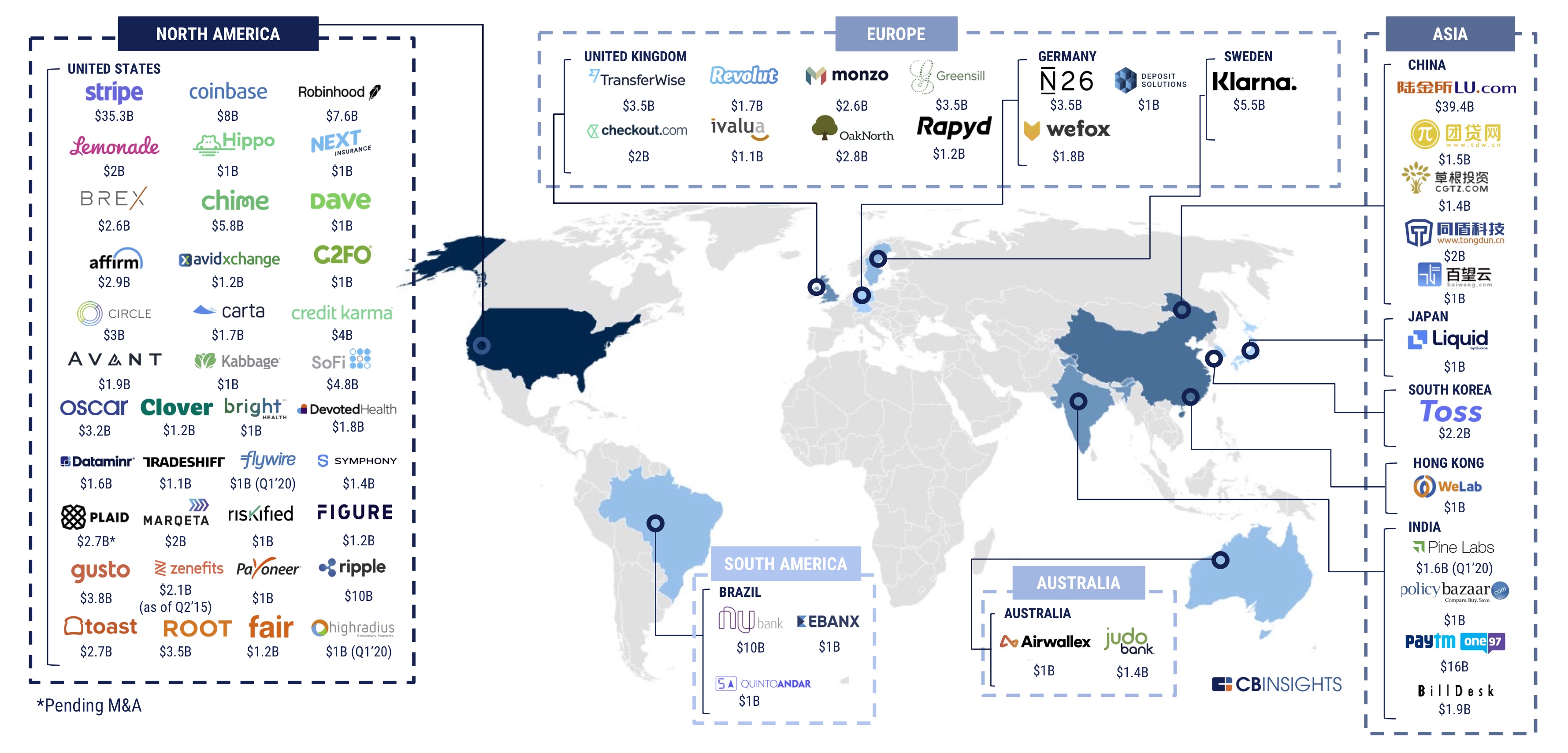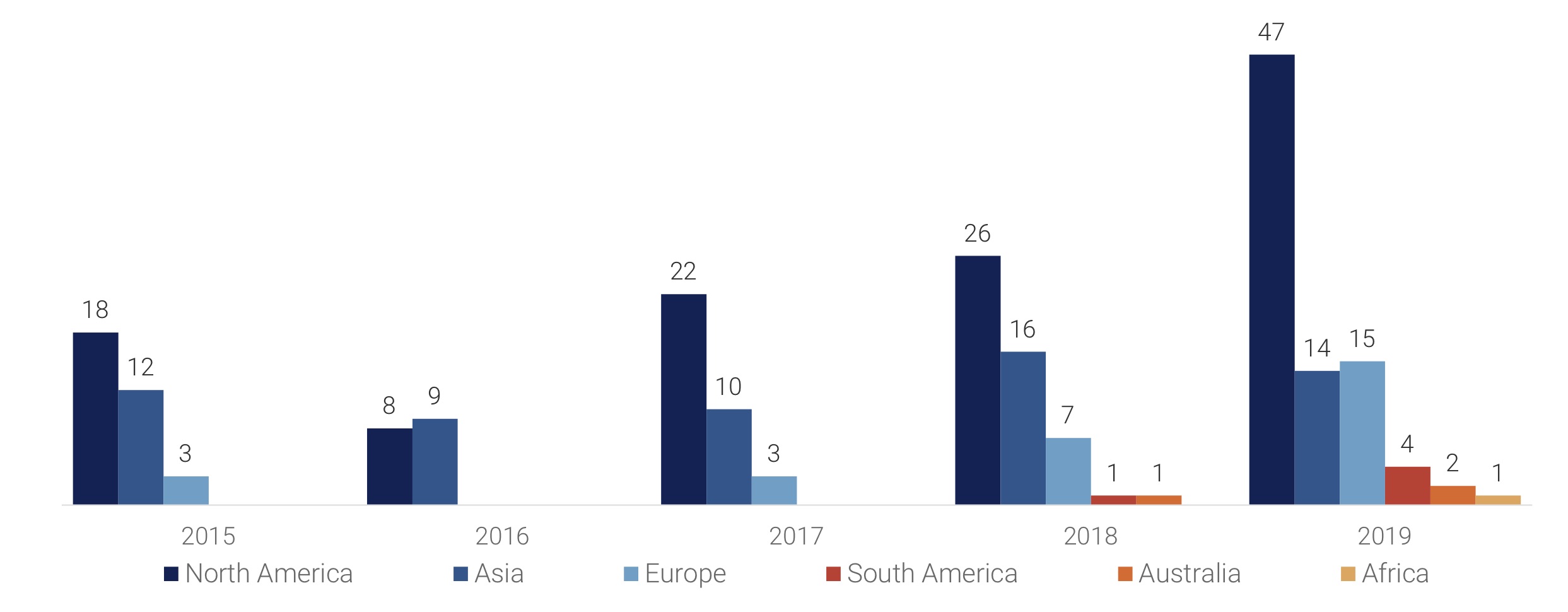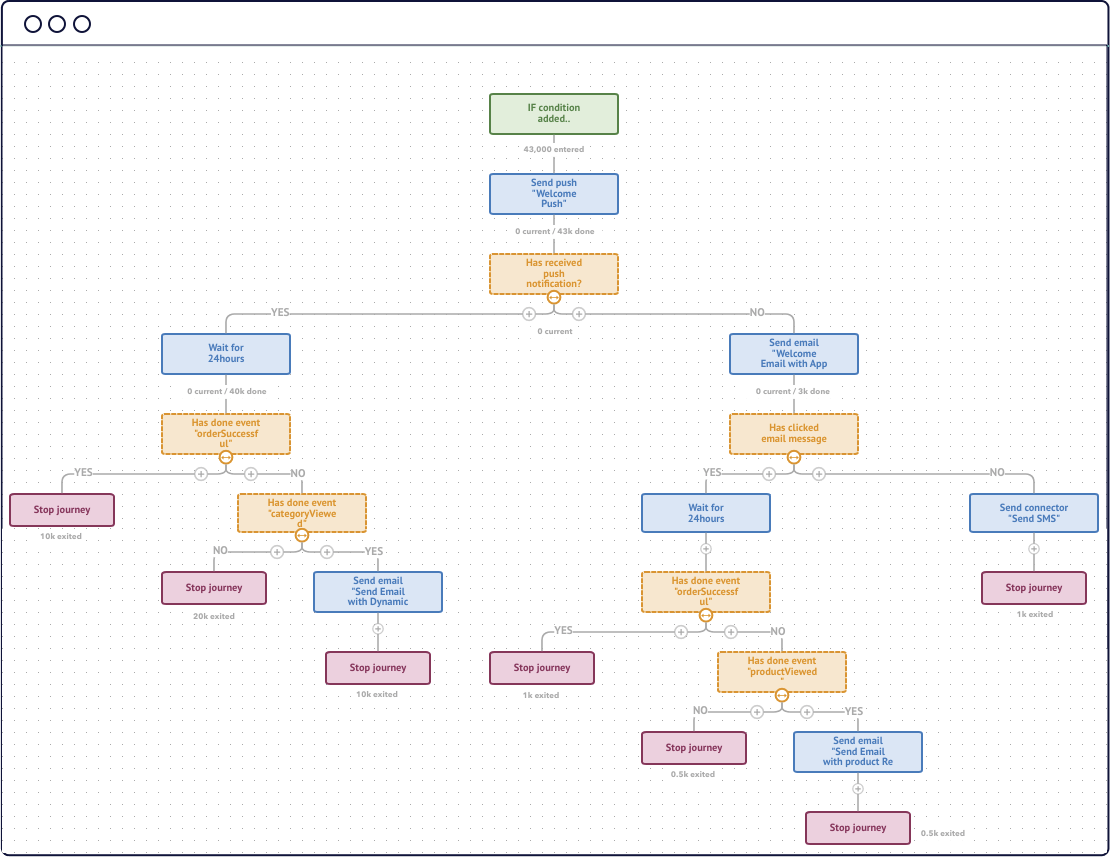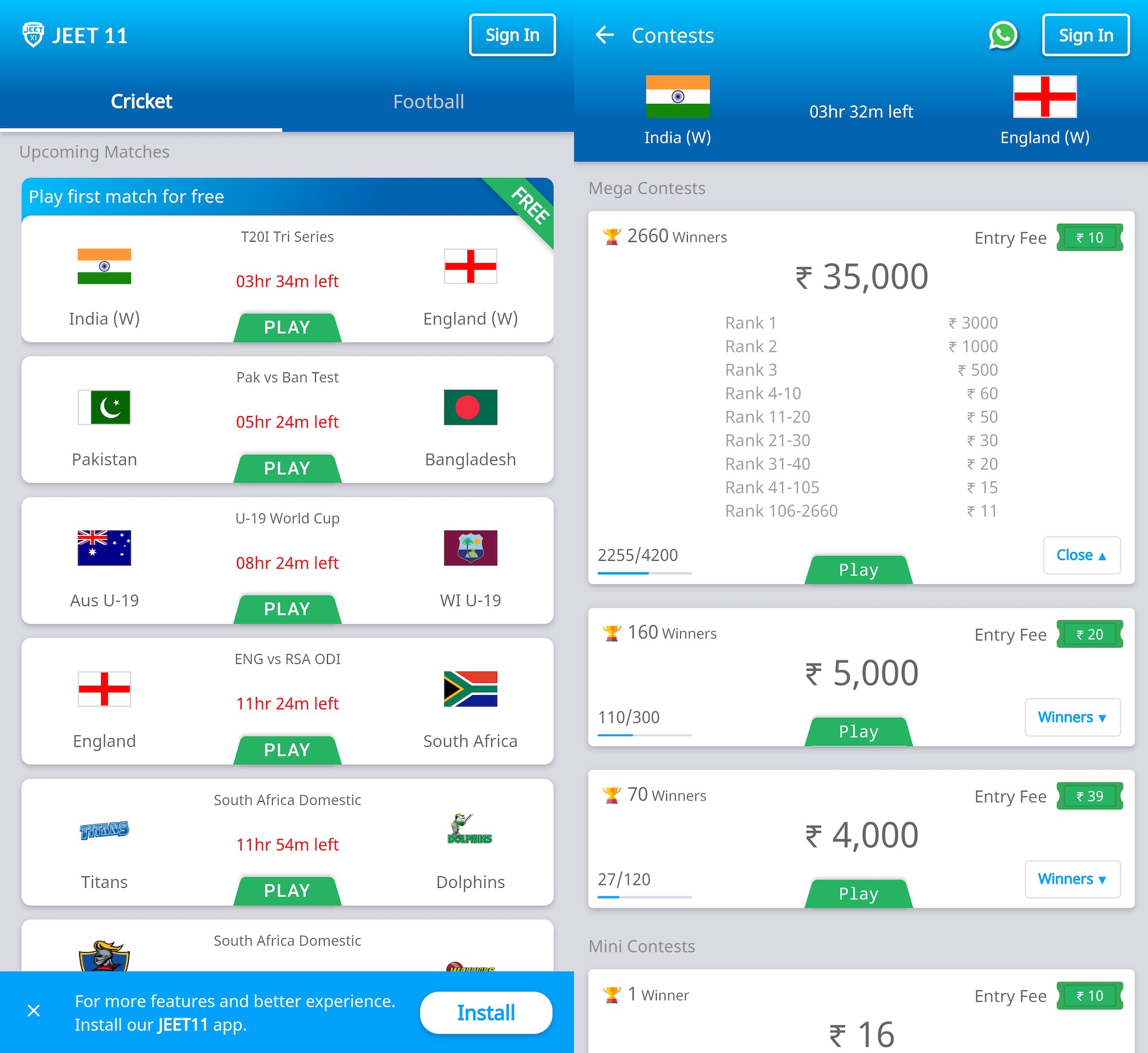Asia
Auto Added by WPeMatico
Auto Added by WPeMatico
Laiye, a Chinese startup that offers robotic process automation services to several major tech firms in the nation and government agencies, has raised $42 million in a new funding round as it looks to scale its business.
The new financing round, Series C, was co-led by Lightspeed Venture Partners and Lightspeed China Partners. Cathay Innovation, which led the startup’s Series B+ round and Wu Capital, which led the Series B round, also participated in the new round.
China has been the hub for some of the cheapest labor in the world. But in recent years, a number of companies and government agencies have started to improve their efficiency with the help of technology.
That’s where Laiye comes into play. Robotic process automation (RPA) allows software to mimic several human behaviors such as keyboard strokes and mouse clicks.
“For instance, a number of banks did not previously offer APIs, so humans had to sign in and fetch the data and then feed it into some other software. Processes like these could be automated by our platform,” said Arvid Wang, co-founder and co-chief executive of Laiye, in an interview with TechCrunch.
The four-and-a-half-year-old startup, which has raised more than $100 million to date, will use the fresh capital to hire talent from across the globe and expand its services. “We believe robotic process automation will achieve its full potential when it combines AI and the best human talent,” he said.
Laiye’s announcement today comes as the market for robotic automation process is still in nascent stage in China. There are a handful of startups looking into this space, but Laiye, which counts Microsoft as an investor, and Sequoia-backed UiPath are the two clear leaders in the market.
As my colleague Rita Liao wrote last year, it was only recently that some entrepreneurs and investors in China started to shift their attention from consumer-facing products to business applications.
Globally, RPA has emerged as the fastest growing market in enterprise space. A Gartner report found last year that RPA market grew over 63% in 2018. Recent surveys have shown that most enterprises in China today are also showing interest in enhancing their RPA projects and AI capabilities.
Laiye today has more than 200 partners and more than 200,000 developers have registered to use its multilingual UiBot RPA platform. UiBot enables integration with Laiye’s native and third-party AI capabilities such as natural language processing, optical character recognition, computer vision, chatbot and machine learning.
“We are very bullish on China, and the opportunities there are massive,” said Lightspeed partner Amy Wu in an interview. “Laiye is doing phenomenally there, and with this new fundraise, they can look to expand globally,” she said.
Powered by WPeMatico
Financial services startups raised less money in 2019 than they did in 2018 as VC firms looked to back late stage firms and focused on developing markets, a new report has revealed.
According to research firm CB Insights’ annual report published this week, fintech startups across the world raised $33.9 billion* in total last year across 1,912 deals*, down from $40.8 billion they picked up by participating in 2,049 deals the year before.
It’s a comprehensive report, which we recommend you read in full here (your email is required to access it), but below are some of the key takeaways.

Early-stage deals dropped to a 12-quarter low as deal share globally shifts to mid- and late-stages (CB Insights)

The fintech market globally today has 67 unicorns as of earlier this month (CB Insights)

2019 saw 83 mega-rounds totaling $17.2B, a record year in every market except Europe
*CB Insights report includes a $666 million financing round of Paytm . It was incorrectly reported by some news outlets and the $666 million raise was part of the $1 billion round the Indian startup had revealed weeks prior. We have adjusted the data accordingly.
Powered by WPeMatico
Google Cloud today announced that its new Seoul region, its first in Korea, is now open for business. The region, which it first talked about last April, will feature three availability zones and support for virtually all of Google Cloud’s standard service, ranging from Compute Engine to BigQuery, Bigtable and Cloud Spanner.
With this, Google Cloud now has a presence in 16 countries and offers 21 regions with a total of 64 zones. The Seoul region (with the memorable name of asia-northeast3) will complement Google’s other regions in the area, including two in Japan, as well as regions in Hong Kong and Taiwan, but the obvious focus here is on serving Korean companies with low-latency access to its cloud services.
 “As South Korea’s largest gaming company, we’re partnering with Google Cloud for game development, infrastructure management, and to infuse our operations with business intelligence,” said Chang-Whan Sul, the CTO of Netmarble. “Google Cloud’s region in Seoul reinforces its commitment to the region and we welcome the opportunities this initiative offers our business.”
“As South Korea’s largest gaming company, we’re partnering with Google Cloud for game development, infrastructure management, and to infuse our operations with business intelligence,” said Chang-Whan Sul, the CTO of Netmarble. “Google Cloud’s region in Seoul reinforces its commitment to the region and we welcome the opportunities this initiative offers our business.”
Over the course of this year, Google Cloud also plans to open more zones and regions in Salt Lake City, Las Vegas and Jakarta, Indonesia.
Powered by WPeMatico
Despite the rapid growth of e-commerce in India, Southeast Asia and other emerging markets, the vast majority of retail transactions there still happen offline in small stores that also serve as neighborhood hubs.
The central role these stores play in their communities led GGV Capital to develop what the firm refers to as its mom-and-pop shop investment thesis. This means backing startups that help small retailers digitize operations, tap into better supply chains and serve as delivery points in markets where logistics and online payment infrastructures are still developing. In turn, GGV’s managing partners believe this will lay the groundwork for stronger e-commerce growth.
Companies that GGV has already invested in under this thesis include B2B e-commerce platform Udaan and Telio, bookkeeping app KhataBook and social commerce startup Shihuituan (also called Nice Tuan) in China.
GGV managing partner Hans Tung says the mom-and-pop shop thesis means looking at consumers’ shopping habits across countries and understanding why they are different from a historical and social perspective. During his career, Tung has observed e-commerce develop in markets including the United States, China, Japan, Taiwan, India, Southeast Asia and Latin America. Offline shopping habits, population density, transportation infrastructure and credit card penetration all played a factor in how e-commerce evolved in each of those places.
“You realize e-commerce doesn’t exist in a vacuum. It exists as a substitute for what is happening in the offline world,” he says. “Mobile payment doesn’t happen in a vacuum. It just fulfills the same needs with a different method. It was a substitution for what was happening in the offline world with credit card and debit card penetration.”
Powered by WPeMatico
Simsim, a social commerce startup in India, said on Friday it has raised $16 million in seven months of its existence as it attempts to replicate the offline retail experience in the digital world with help from influencers.
The Gurgaon-based startup said it raised $16 million across seed, Series A and Series B financing rounds from Accel Partners, Shunwei Capital and Good Capital. (The most recent round, Series B, was of $8 million in size.)
“Despite e-commerce players bandying out major discounts, most of the sales in India are still happening in brick-and-mortar stores. There is a simple reason for that: Trust,” explained Amit Bagaria, co-founder of Simsim, in an interview with TechCrunch.

The vast majority of Indians are still not comfortable with reading descriptions — and that too in English, he said.
Simsim is taking a different approach to tackle this opportunity. On its app, users watch short-videos produced in local languages by influencers who apply beauty products or try out dresses and explain the ins-and-outs of the products. Below the video, the items appear as they are being discussed and users can tap on them to proceed with the purchase.
“Videos help in educating users about the category. So many of them may not have used face masks, for instance. But it becomes easier when the community influencer is able to show them how to apply it,” said Rohan Malhotra, managing partner at Good Capital, in an interview with TechCrunch.
Influencers typically sell a range of items and users can follow them to browse through the past catalog and stay on top of future sales, said Bagaria, who previously worked at the e-commerce venture of financial services firm Paytm .
“This interactiveness is enabling Simsim to mimic the offline stores experience,” said Malhotra, who is one of the earliest investors in Meesho, also a social commerce startup that last year received backing from Facebook and Prosus Ventures.
“The beauty to me of social commerce is that you’re not changing consumer behavior. People are used to consuming on WhatsApp — and it’s working for Meesho. Over here, you are getting the touch and feel experience and are able to mentally picture the items much clearer,” he said.
Simsim handles the inventories, which it sources from manufacturers and brands, and it works with a number of logistics players to deliver the products.
“Several Indian cities and towns are some of the biggest production hubs of various high-quality items. But these people have not been able to efficiently sell online or grow their network in the offline world. On Simsim, they are able to work with influencers and market their products,” said Bagaria.
The platform today works with more than 1,200 influencers, who get a commission for each item they sell, said Bagaria, who plans to grow this figure to 100,000 in the coming years.
Even as Simsim, which has been open to users for six months, is still in its nascent stage, it is beginning to show some growth. It has amassed over a million users, most of whom live in small cities and towns, and it is selling thousands of items each day, said Bagaria.
He said the platform, which currently supports Hindi, Tamil, Bengali and English, will add more than a dozen additional languages by the end of the year. In about a month, Simsim also plans to start showing live videos, where influencers will be able to answer queries from users.
A handful of startups have emerged in India in recent years that are attempting to rethink the e-commerce market in the nation. Amazon and Walmart, both of which have poured billions of dollars in India, have taken a notice too. Both of them have added support for Hindi in the last two years and have made several more tweaks to their platforms to expand their reach.
Powered by WPeMatico
MoEngage, a San Francisco and Bangalore-based startup that helps firms better understand their customers and improve their engagement, has raised $25 million in a new financing round as it looks to grow its network in North America and Europe.
The Series C was led by Eight Roads Ventures . F-Prime Capital, Matrix Partners India and Ventureast also participated in the round. The six-year-old startup, which is an Alchemist alum, has raised about $40 million to date.
MoEngage offers a product that allows clients to gain deeper insights into the way their customers or users are engaging with their apps and websites. “We can, for instance, tell at what time a customer is using the app,” said Raviteja Dodda, founder and chief executive of MoEngage, in an interview with TechCrunch.
These insights, all displayed on one dashboard, could be very useful for firms to retain their existing customers or find optimized ways to attempt to sell more to them.
“Based on your understanding about the customer, you can send them personalized notifications. Say you’re using a ride-hailing app. The firm would now know how often you use their app and at what time you tend to avail their service. Based on these learnings, they can offer you deals or reminders that could help them improve their conversion rate,” he said.

MoEngage today works with a number of major firms in North America, Europe and Asia. Some of its clients include Deutsche Telekom, CIMB Bank, Travelodge, Samsung, McAfee, Vodafone, retail chain Future Retail, ride-hailing service Ola, budget-hotel operator OYO, grocery delivery startup Bigbasket and music streaming service Gaana.
In total, Dodda said his startup has amassed “hundreds of clients” in over 35 countries and is serving more than 400 million active users for them each month.
“MoEngage, with its differentiated offering, scalable platform and a customer-first approach, will play an important role in enabling us to deliver contextual and relevant communications to our customers and drive higher customer lifetime value,” said Arun Srinivas, chief operating officer at Indian ride-hailing startup Ola, in a statement.
MoEngage, which competes with a handful of startups including India-based Clevertap, will infuse the fresh capital to find more customers in North America and Europe, and scale its product operations, said Dodda.
“What differentiates MoEngage from other engagement platforms is the combination of their ever-evolving AI-enabled customer journey capabilities, industry-best channel reachability and top-notch customer support. We are thrilled to partner with Raviteja and his team as they look to expand globally,” said Shweta Bhatia, Partner at Eight Roads Ventures.
Powered by WPeMatico
It was South Korea’s — rather than Netflix’s — night at the Oscars, thanks to Bong Joon-ho’s biting class satire Parasite, which won a well-deserved best picture.
But tech giant Samsung appears to have been hoping to steal a little of the national limelight. The Korean phone maker chose a prime Oscars ad slot to show off a 360-degree view of its next foldable, running it as a teaser for its Unpacked 2020 unboxing event, which takes place in San Francisco tomorrow.
#Samsung showing off the new foldable during the #Oscars ahead of #unpacked2020 pic.twitter.com/PD9KdZKjmB
— Carolina Milanesi (@caro_milanesi) February 10, 2020
The ad shows the flip phones from all angles, opening and closing while the Comic Strip sounds of Serge Gainsbourg and Brigitte Bardot pop and crackle in the background.
Notably we see the foldable propping itself up, with the screen half or three-quarters open, for a hands-free face-time style chat. (In case you were wondering what the point of a flip phone might be in 2020.)
There’s also an eye-popping iridescent purple color-way on show that seems intended to make the most of the screen-concealing clamshell design. A black version does a much better job of blending into the background, and a brief side view of the phone shows what looks like a side-mounted fingerprint scanner as shown in earlier leaks.
And if you’re wondering how you’ll screen incoming calls when the clam is closed, the ad shows a micro display that tells you the name of the person calling. TL;DR: You can still ghost your frenemies while packing a flip.
We’ve seen renders of the Samsung Galaxy Z Flip leak online before but this is an official full view of the foldable Samsung hopes will spark a retro fashion craze for clamshell flip phones. (See also the rebooted Motorola Razr.)
Samsung will also, of course, be hoping this foldable can bend without immediately breaking.
Stay tuned for all the details from Samsung Unpacked 2020 as we get them (we’re especially keen to find out the price-tag for this foldable), including our first look at the next flagship Galaxy S device.
TechCrunch’s intrepid hardware editor, Brian Heater, will be on the ground in San Francisco tomorrow to get hands on with all the new kit so you don’t have to.
Powered by WPeMatico
The growing market of fantasy sports in India may soon have a new and odd entrant: ShareChat .
The local social networking app, which in August last year raised $100 million in a financing round led by Twitter, has developed a fantasy sports app and has been quietly testing it for six months, two sources familiar with the matter told TechCrunch.
ShareChat’s fantasy sports app, called Jeet11, allows betting on cricket and football matches and has already amassed more than 120,000 registered users, the sources said. The app, or its website, does not disclose its association with ShareChat.
A ShareChat spokesperson confirmed the existence of the app and said the startup was testing the product.
Jeet11 is not available for download on the Google Play Store due to the Android maker’s guidelines on betting apps, so ShareChat has been distributing it through Xiaomi’s GetApps app store and the Jeet11 website, and has been promoting it on Instagram. It is also available as a web app.

Fantasy sports, a quite popular business in many markets, has gained some traction in India in recent years. Dream11, backed by gaming giant Tencent, claimed to have more than 65 million users early last year. It has raised about $100 million to date and is already valued north of $1 billion.
Bangalore-based MPL, which counts Sequoia Capital India as an investor and has raised more than $40 million, appointed Virat Kohli, the captain of the Indian cricket team, as its brand ambassador last year.
In the last two years, scores of startups have emerged to grab a slice of the market, and the vast majority of them are focused on cricket. Cricket is the most popular sport in India, just ask Disney’s Hotstar, which claimed to have more than 100 million daily active users during the cricket season last year.
Or ask Facebook, which unsuccessfully bid $600 million to secure streaming rights of the IPL cricket tournament. It has since grabbed rights to some cricket content and appointed the Hotstar chief as its India head.
So it comes as no surprise that many sports betting apps have signed cricketers as their brand ambassador. Hala-Play has roped in Hardik Pandya and Krunal Pandya, while Chennai-based Fantain Sports has appointed Suresh Raina.
But despite the growing popularity of fantasy sports apps, where users pick players and bet real money on their performances, the niche is still sketchy in many markets that consider it betting. In fact, Twitter itself restricts promotion of fantasy sports services in many markets across the world.
In India, too, several states, including Assam, Arunachal Pradesh, Odisha, Sikkim and Telangana, have banned fantasy sports betting. Jeet11 currently requires users to confirm that they don’t live in any of the restricted states before signing up for the service.
“It doesn’t help matters either that the fantasy sports business’ attempts at legitimacy involve trying to be seen as video games — a cursory glance at a speakers panel for any Indian video game developer event is evidence of this — rather than riding on its own merits,” said Rishi Alwani, a long-time analyst of Indian gaming market and publisher of news outlet the Mako Reactor.
An executive who works at one of the top fantasy sports startups in India, speaking on the condition of anonymity, said that despite handing out cash rewards to thousands of users each day, it is still challenging to retain customers after the conclusion of any popular cricket tournament. “And that’s after you have somehow convinced them to visit your website or download the app,” he said.
For ShareChat, which has been exploring ways to monetize its 60 million-plus users and posted a loss of about $58 million on no revenue in the financial year ending March 31, that’s anything but music to the ears. In recent months, the startup, which serves users in more than a dozen local languages, has been experimenting with ads.
Powered by WPeMatico
Increasingly, the streets of Karachi and Lahore are being flooded with men riding bikes and wearing green T-shirts, a writer friend recently told me. In a sense, these men represent the emergence of Pakistan’s tech startups.
India now has more than 25,000 startups and raised a record $14.5 billion last year, according to government figures. But not all Asian countries are as large as India or have such a thriving startup ecosystem. Long overdue, things are beginning to change in bordering Pakistan.
Bykea, a three-year-old ride-hailing and delivery service, today has more than 500,000 bikes registered on its platform. It operates in some of Pakistan’s most populated cities, such as Karachi, Lahore and Islamabad, Muneeb Maayr, Bykea founder and CEO, told TechCrunch.
Maayr is one of the most recognized startup founders in Pakistan, and previously worked for Rocket Internet, helping the giant run fashion e-commerce platform Daraz in the country. While leading Daraz, he expanded the platform to cater to categories beyond fashion; Daraz was later sold to Alibaba.
Powered by WPeMatico
The Bouqs plans to take a slice of Japan’s $6 billion flower market this year with a $30 million strategic growth round from Japanese enterprise business investor Yamasa. While The Bouqs still must compete with bigger contenders like 1-800-Flowers and FTD in the U.S., it will now have to take on incumbents like Ayoma Flower Market and FloraJapan, both of which also offer same-day delivery throughout the land of the rising sun.
So why Japan? According to The Bouqs founder and CEO John Tabis, his company had been looking to expand internationally for awhile and Japan seemed to fit well within that plan.

The Bouqs CEO and founder John Tabis
But as far as bigger competition in any country, Tabis is undeterred, telling TechCrunch there’s plenty of opportunities in the flower delivery business if you know where to look. “There’ve been four or five other startups that tried something similar — some of them no longer exist,” Tabis said. “But the thing that’s worked for us, the first is the way that we’ve sourced is unique and it’s really the foundation of our brand.”
The Bouqs sprung up in a wave of Silicon Valley funded flower delivery startups like BloomThat, Farm Girl and Urban Stems, all promising Pinterest -worthy bouquets at the click of a button. But what set it apart was its farm-direct supply chain, cutting out costs from middlemen and delivering flowers that last longer.
This particular round now puts The Bouqs up top as far as total funding raised among its flower delivery startup peers, bringing in $74 million in total funding to date, with competitor Urban Stems in second place with $27 million in funding, according to Crunchbase.
Tabis also tells TechCrunch the new funds will further the company’s development into brick-and-mortar stores and that it’s jumping into the wedding biz. As anyone who’s ever planned a wedding will tell you, it’s an industry ripe for disruption — with brides and grooms spending about 8% of the budget on the flowers alone.
One other renewed focus for the company will be its subscription business, keeping customers set up with a fresh bunch of flowers once the old bouquet is ready for tossing. “It’s sort of the linchpin of our business that’s grown very nicely…expanding both our revenue and profitability,” Tabis told TechCrunch.
The SVP of Yamasa, Norikazu Sano, also mentioned further expansion into Asia for the company in a company press release, so we could see The Bouqs in more international areas over time, if all goes right in Japan.
“This financing will enable us to fully realize our vision to create a global network of top-quality farms paired with a category-defining local floral brand enabled by proprietary supply chain technology and vertically integrated sourcing capabilities. We’re so excited for this next phase of the business, and all of the opportunities that lie ahead,” Tabis said.
Powered by WPeMatico